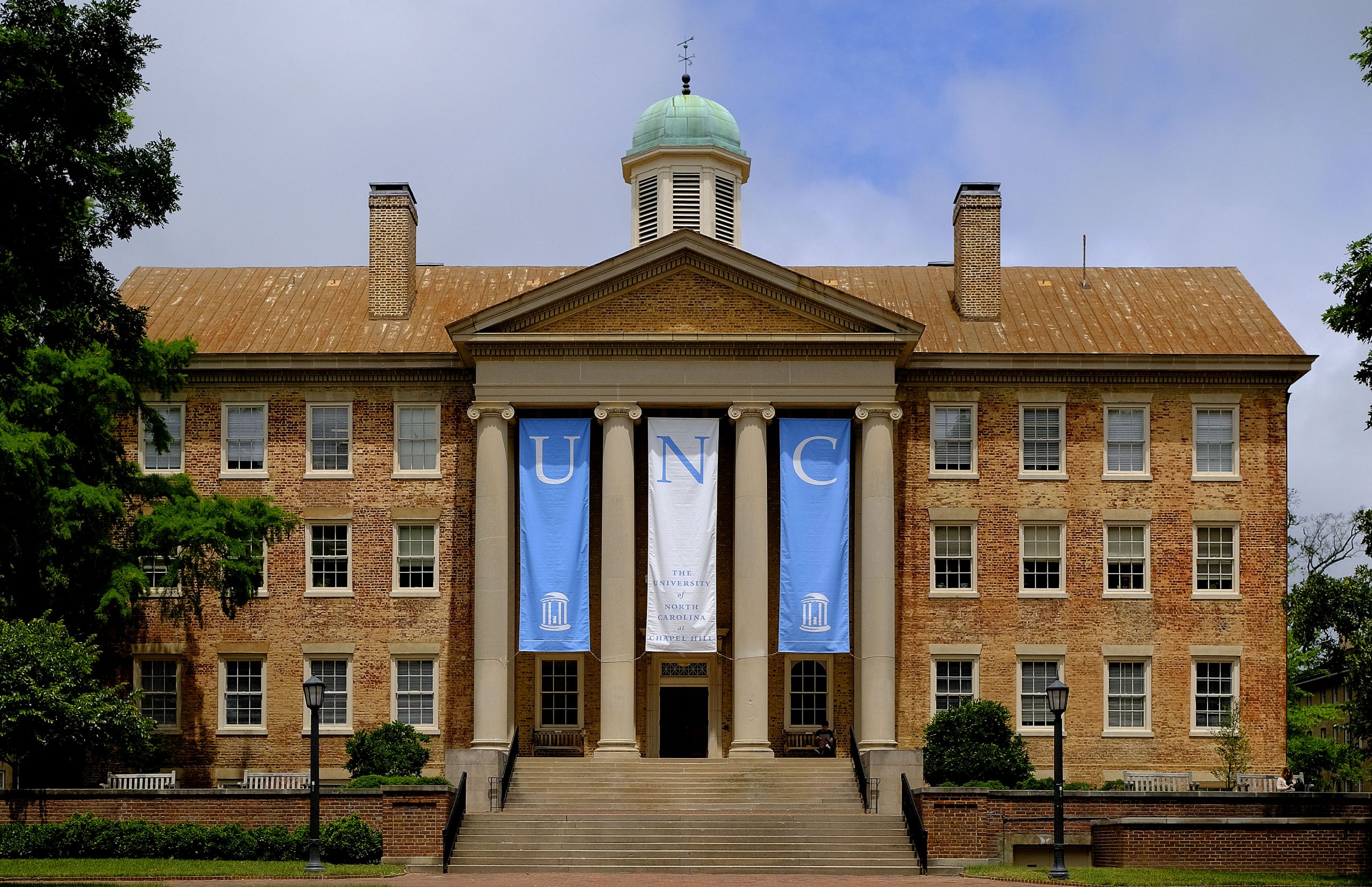UNC, Government Settle Anti-Semitic Act Claim
Posted on Dec. 2, 2019
The University did not admit to breaking any laws, but it reiterated its commitment to foster an environment free from prohibited harassment — including but not limited to anti-Semitic harassment. (Photo by Grant Halverson ’93)
The federal Office of Civil Rights has accepted UNC’s proposed resolution to a complaint that the University was party to an anti-Semitic act at a conference co-sponsored with Duke University on UNC’s campus in March.
The University did not admit to breaking any laws, but it reiterated its commitment to foster an environment free from prohibited harassment — including but not limited to anti-Semitic harassment.
The complaint alleged that the University discriminated against students of Jewish descent on the basis of national origin in connection with a conference held on March 22-24, 2019, titled “Conflict over Gaza: People, Politics, and Possibilities.” The complaint alleged that the conference included an offensive and anti-Semitic performance by a hip-hop artist and that the conference had created a hostile environment based on the discovery of anti-Semitic flyers found in Davis Library and books found left open to pictures of swastikas in an academic building in the weeks immediately afterward.
In a message to the campus community on Nov. 25, Interim Chancellor Kevin Guskiewicz wrote that “I reaffirm the University’s commitment to creating a place where every member of our community feels safe and respected and can thrive in an environment free from anti-Semitism and all forms of discrimination and harassment.”
The OCR detailed the language of the flyers, which were investigated but not disclosed by UNC Police. Its letter said the flyers referred to an “evil Jewish plot to enslave and kill you” because “their religion condones and teaches evil.” Additional flyers found in the library contained a similar anti-Semitic message, referring to “the Jews, illuminati (Jews and their helpers), and the free masons (infiltrated by Jews)” and stated, “Do everything you can to fight the silent covert Jewish plot to enslave and kill good Americans.”
In the week prior to discovery of the graffiti, two people were arrested for defacing the Unsung Founders Memorial in McCorkle Place with what police said was racist graffiti. The memorial honors people of color, enslaved and free, who helped build the University.
“OCR found in its review that the University took steps to respond to the performance, the flyers, the report described above concerning a swastika, and the numerous complaints received from the University community after the Conference,” its letter said.
In a message to the campus community on Nov. 25, Interim Chancellor Kevin Guskiewicz wrote that “I reaffirm the University’s commitment to creating a place where every member of our community feels safe and respected and can thrive in an environment free from anti-Semitism and all forms of discrimination and harassment.”
“We encourage any community member who believes they have been subjected to prohibited harassment to report it to the University,” he said. “Additional information is also provided about confidential resources such as Campus Health Services, Counseling and Psychological Services, the Employee Assistance Program, the University’s Gender Violence Services Coordinators and the University Ombuds Office.”
OCR said the UNC must:
• Take all steps reasonably designed to ensure that students enrolled in the University are not subjected to a hostile environment, including responding to and investigating all reports of anti-Semitism and taking all appropriate action following the investigation, including discipline;
• Issue a statement to its community that the University does not tolerate acts of prohibited harassment, including but not limited to anti-Semitic harassment, and encourage members of the community to report any such incidents to the University;
• For the next three academic years, include in each training/orientation offered to the University community regarding the policies a component on prohibited harassment, including anti-Semitic harassment, subject to OCR’s review and approval; and
• For each of the next two academic years, host at least one meeting providing students, faculty and staff the opportunity to discuss with University administrators any concerns they have about incidents of prohibited harassment.
